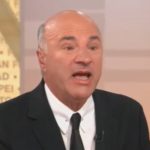Former President Donald Trump revealed an important reason for refusing key government briefings while campaigning for his second term on Wednesday.
Trump announced that he would decline the intelligence briefings typically offered to presidential nominees. He expressed concerns about the potential for being accused of leaking classified information if he were to receive them.
U.S. intelligence agencies typically offer these briefings to prepare candidates for the responsibilities of the presidency.
His announcement comes in the wake of controversies surrounding the discovery of government documents, including classified material, at his Mar-a-Lago residence. Democrats have also questioned Trump’s reliability with sensitive information. In an interview with DailyMail.com, Trump mentioned that while he is eligible for the briefings, he viewed them as a potential setup and decided to forgo them.
“I don’t want that because as soon as I get that, they’ll say that I leaked it,” Trump told the outlet. “So the best way to handle that situation is, I don’t need their briefing. They come in, they give you a briefing, and then two days later, they leak it, and then they say you leaked it. So the only way to solve that problem is not to take it.”
Previously, Biden had banned Trump from receiving any post-presidential intelligence briefings, citing concerns about Trump’s behavior and trustworthiness, even before he faced indictment related to handling classified documents.
The intelligence briefings typically occur in late summer or early fall, offering a comprehensive overview of national security issues. More detailed and sensitive information is only shared after a candidate has been elected.
The tradition of providing classified intelligence briefings to presidential nominees was established in 1952 by President Harry S. Truman during the Cold War era. Truman, drawing from his own experience of feeling unprepared when he assumed the presidency in 1945 after Franklin D. Roosevelt’s sudden death, firmly believed that candidates needed to be fully informed about national security issues.
The tradition aimed to ensure a smooth transition of power and immediate readiness to address crises upon taking office.
The briefings are conducted in secure facilities, often at locations such as the FBI headquarters in Washington, D.C., or at a site closer to the candidate’s home to maintain security and confidentiality.
During the 1960 campaign, both John F. Kennedy and Richard Nixon received the same intelligence briefings. Kennedy was noted for his active questioning and engagement, which contrasted with Nixon’s more passive approach.












